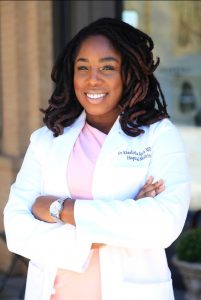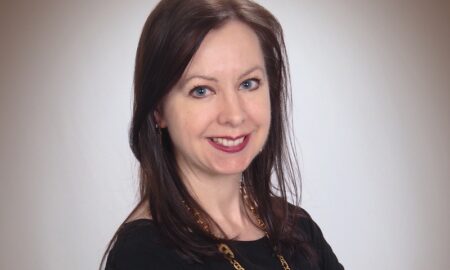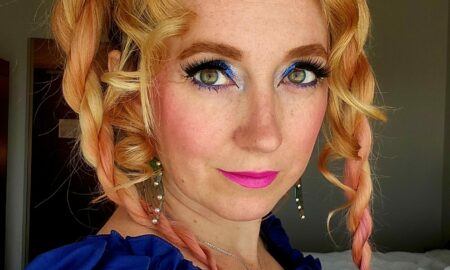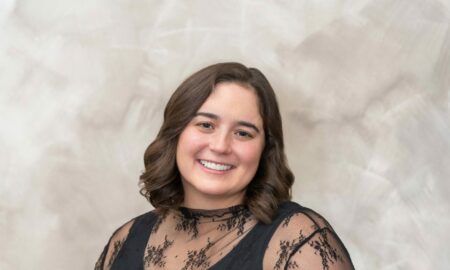 Today we’d like to introduce you to Dr. Khaalisha Ajala MD, MBA.
Today we’d like to introduce you to Dr. Khaalisha Ajala MD, MBA.
Thanks for sharing your story with us Dr. Ajala. So, let’s start at the beginning, and we can move on from there.
I am a hip-hop head who loves to DJ and work for my nonprofit Heartbeats & HipHop, Inc when I’m not rounding as a board certified assistant professor of hospital medicine at Emory School of Medicine/Grady Memorial Hospital. My love for medicine and hip-hop truly saved my life and kept me focused. I was born and raised in Baltimore, and I saw the effects that addiction, HIV, and crime could have on a city. My mom, funny enough, is a hip-hop head and nurse of 30 plus years. She listened to Grandmaster Flash and the furious five, Run DMC and Slick Rick and she played all the time. There were medical books always laying around the house. So I fell in love with them both.
As a child in the 90’s, she introduced me to hip-hop as a form of activism, and I realized that I could be an activist in my own way and that was through medicine. I was too young to be a doctor, so I would study the diseases of people in pop culture and later hip-hop. Easy E’s passing had an effect on me in that I realized that my childhood idols weren’t immortal. I began to collect the medical stories of my heroes.
Later, when I got to medical school, I would connect their various conditions with the things that I had to study. Easy E died of an Aids-related illness. JDilla passed from a lupus related illness. Nate Dog passed from multiple strokes. Phife Dawg was the funky diabetic. MC Shan had once battled drug abuse. One of the fat boys and Big Pun had lost their lives to obesity-related issues. Lil Kim has been open about her surgical changes which reflect some issues of self-esteem. Old Dirty Bastard lost his life secondary to drug abuse. Salt of Salt N Pepa had a stroke and is doing well, and more currently we see Kanye fight his mental health battles pretty publicly. These are things that I teach about when I visit high schools, universities and after-school programs. When Heartbeats and hip-hop does a popup street clinic, we not only partnered with Fulton County Dept of Health to screen people for HIV while we screen for HTN but we offer resources for free pap smears, mammograms, and programs for colon cancer screening. More importantly, we bring young doctors like myself and other medical professionals of color out in the community and away from their offices and bedside rounds.
There has been a relationship of mistrust of the medical industry and communities of color for good reason. However, we seek to empower people to make informed decisions about their health care and nutrition. We have also hosted community programs that get people moving and in touch with their neighborhood medical professionals such as panel discussions on black men’s health, black women’s and the state of black health as a whole. We have also hosted donation based Stillmatic Yoga, a charity bike ride and charity hip-hop karaoke. If I’m not somewhere offering health education, then I’m likely DJ for the event! This is the way they give back and this the way that I fight back. This is how I show that lives matter. I try to help others keep on living.
We’re always bombarded by how great it is to pursue your passion, etc. – but we’ve spoken with enough people to know that it’s not always easy. Overall, would you say things have been easy for you?
Absolutely NOT! There are more women in the field of medicine today as opposed to the women of my mother’s generation were never told to think of being a physician as a career. Sometimes, when I walk into a room to introduce myself to a patient, I am still assumed to be everything but the doctor. After I introduce myself as the doctor, I might still be asked who is the authority who makes the decisions about their care. It’s not easy at times, but it is rewarding to have the ability to change the face of medicine.
So, as you know, we’re impressed with Heartbeats & HipHop, Inc. – tell our readers more, for example, what you’re most proud of as a company and what sets you apart from others.
Dr. Khaalisha Ajala, MD, MBA is an assistant professor of hospital medicine at Emory University School of Medicine and based at Grady Memorial Hospital, a level one trauma center in Atlanta, GA. She is a Baltimore, MD native, a graduate of American Univ. Antigua College of Medicine and graduate of Morehouse School of Medicine’s Internal Medicine residency program. Dr. Ajala is also a health education advocate, mentor, DJ, speaker and founder and CEO of the health education nonprofit organization Heartbeats and HipHop, Inc. (HBHH)
In addition to being a hospitalist, her focus has gone beyond the hospital doors with education, prevention and the eradication of health disparities in urban communities. As a DJ and lover of music, she has found the importance of identifying hip-hop culture and popular music as a way to connect with various communities and age groups in order to promote disease prevention and healthy practices.
A lot of communication about a patient’s health and what to expect in the disease process can be lost in translation because sometimes health care professionals don’t know how to create real-world applications and speak as plainly as possible to patients. At other times patients are afraid to admit not understanding what was explained to them. When it comes to medication administration or disease process communication is lost. Dr. Ajala would like to fill that gap while at work but also in the community with HBHH.
There’s a wealth of academic research that suggests that lack of mentors and networking opportunities for women has materially affected the number of women in leadership roles. Smart organizations and industry leaders are working to change this, but in the meantime, do you have any advice for finding a mentor and building a network?
If you have met someone who you would like to mentor you or have interest in a field, volunteer, intern or seek that person out. Walk up to them and introduce yourself, email them or even volunteer to work at their company or office. It doesn’t have to be a several month long internship. You could simply volunteer at certain events or a couple times a week. It will help you and your mentor to get to know one another and help you to learn what it is like to be in their shoes.
I volunteered at Johns Hopkins School of medicine as a volunteer at the nurses’ station. I would boldly strike up a conversation with the cardiologists who were completing medical records and boom! I met Dr. John Resar, MD a cardiologist who became my mentor and advised me on how to apply to medical school and even wrote one of the recommendation letters.
Contact Info:
- Website: www.heartbeatshiphop.org
- Email: heartbeatandhiphop@gmail.com
- Instagram: @heartbeatsandhiphop
- Facebook: Heartbeats and HipHop
- Twitter: @HBHipHOP








 Image Credit:
Image Credit:
“3rd Saturdays at the Glenwood” courtesy of BoomBap ATL
Getting in touch: VoyageATL is built on recommendations from the community; it’s how we uncover hidden gems, so if you know someone who deserves recognition please let us know here.



















